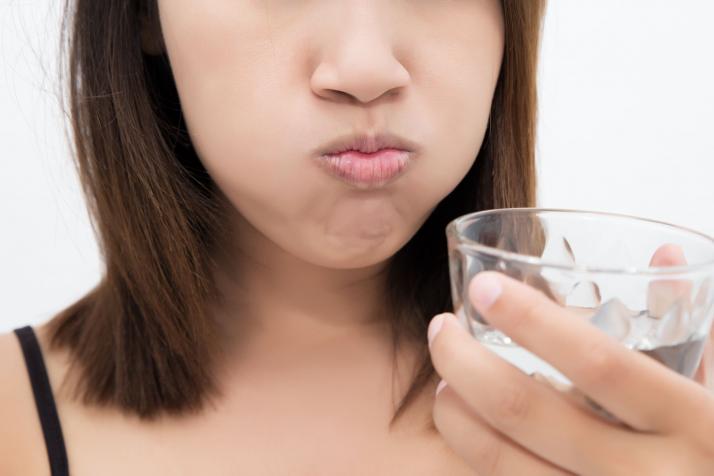
If you’ve never heard the term “oil pulling,” then you’re more than likely scratching your head right now and asking how one “pulls” a liquid, and more importantly, why?
To put it simply, oil pulling involves swishing oil around the mouth, using it like a mouthwash.
If you’re still confused, we don’t blame you. Oil pulling is actually an oral therapy from Ayurvedic medicine that has been practiced for 3000 years! Although the scientific research is limited, a study we came across found that “…available research on effect of oil pulling on oral hygiene shows promising benefits of oil pulling procedure on oral cavity,” and other recent studies show evidence that the practice can work against gingivitis, plaque, and microorganisms that cause bad breath.
It may sound seriously pseudo-sciency, but the mechanics do make sense if you look at it this way, from the same article we referenced above: “oil pulling activates salivary enzymes which absorb toxins such as chemical toxins, bacterial toxins and environmental toxins from the blood and removed from the body through the tongue.”
How to oil pull
Typically, it is recommended to swish the oil around (gently) in your mouth for 20 minutes, but even 5 minutes of this action has shown to have some results, so starting at 5-10 minutes may be a good idea if you have never oil pulled before. 20 minutes can feel like quite a long time! Oh – and definitely don’t swallow the oil, that would be unpleasant.
When you are done, make sure to spit into the garbage. It’s best to avoid the sink so as to not risk clogging your drain.
But which oil should you go for?
Most sources will recommend coconut oil for its lauric acid, which is well-known for having anti-microbial agents and is more effective for reducing plaque adhesion. However, sesame oil, olive oil, and sunflower oil are all commonly used as well, each with their own unique benefits.
If you try oil pulling, please remember even though it is generally accepted as a harmless practice that can help support your oral health, it is not a replacement for dental care. Keep brushing your teeth and making those checkup appointments!
Sources: https://www.ncbi.nlm.nih.gov/pmc/articles/PMC5198813/
Leave a Comment
You must be logged in to post a comment.



0 Comments